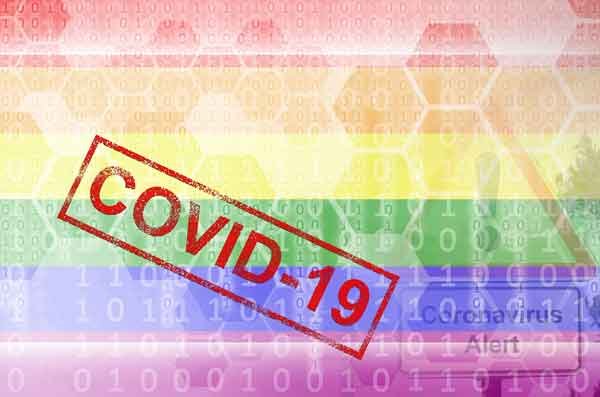By Paul Sixpence
OVER the years, LGBTIQ persons in Zimbabwe have faced societal disavowals owing to their sexual orientation and gender identity.
Covid-19 and associated control measures (lockdowns) have further exacerbated the situation of LGBTIQ persons in Bulawayo, Matabeleland North and South provinces.
Sam Ndlovu, Director at Bulawayo based, Trans Research, Education, Advocacy and Training organisation (TREAT) cited free movement, domestic violence, access to justice and gender-affirming health care as key challenges that transgender persons are facing in light of Covid-19.
“Mobility (free movement) even with exemption letters has been difficult,” said Ndlovu. “For some transgender persons, their physical appearance does not match their gender marker on their identity documents.”
Ndlovu further added that incidents of domestic violence against transgender persons are on the increase and often go unreported because of societal stigma and discrimination.
Transgender, lesbian and bisexual women struggle to access justice for fear of derision by police officers when they report rights violations.
In the context of Covid-19, transgender persons have struggled to access comprehensive gender-affirming health care services at public health centres.
Transgender persons report Covid-19 vaccine hesitancy, as they still await expert medical opinion on the safety of vaccines for trans persons on hormone replacement therapy.
They have also reported challenges in accessing health care due to the closure of borders making it difficult for those that seek transition treatment and support to travel out of the country to access the services.
The United States President’s Emergency Plan for AIDS Relief (PEPFAR) in a recent tweet, noted that “Transgender women are disproportionately affected by HIV, often due to stigma related to their gender identity, which can impede their access to HIV prevention and treatment services…”
Health experts have long advocated for the provision of status neutral HIV solutions, that encourage the roll-out of continuous HIV prevention, care and treatment regardless of a person’s HIV and gender identity status.
In a survey conducted by CITE at the City of Bulawayo run public primary health care centres, this reporter observed posters denoting the availability of “LGBTIQ friendly services.” However, LGBTIQ persons have long decried the absence of health care workers trained to treat LGBTIQ patients and other groups considered at high risk.
LGBTIQ persons also bear the heaviest brunt of the socio-economic impact of Covid-19.
“I am informally employed and [Covid-19] lockdowns disrupted my sources of livelihood,” said Walter Dube, a gay man from Bulawayo. “The inability to provide for myself and my family affects my mental well-being. I have been stressed and depressed.”
Covid-19 lockdowns also exposed the financial insecurity of lesbian and bisexual women.
“Covid-19 exposed a lot of gaps in our community (lesbian and bisexual women) related to financial security,” said Miles Moyo, Programmes Officer at Voice of the Voiceless (VOVO) a regional feminist organisation advocating for lesbian, bisexual, queer and trans (LGBTQ) women’s rights in Bulawayo, Matabeleland North and South provinces.
“Most people in our community are either unemployed or employed in the informal sector. When lockdowns happened, the informal sector was completely shut down. This meant that people could not afford to pay rent, buy food, medication and take care of themselves. For some of our members contributing financially to their households is a matter of safety and security because even if your family does not approve of whom you are (sexual orientation) when you contribute financially and otherwise to the household you are treated with respect.”
During lockdowns homes became unsafe spaces for LBQT persons.
“Being stuck in a home, in a space where you are not wanted nor accepted and having nowhere to escape to was mentally straining,” further added Moyo.
“For long we have taken it for granted that our homes can be unsafe. Covid-19 brought that to light. There was an ever-present threat of physical harm and violence. Owing to lockdowns we could not gather at safe spaces for mental health support and counselling.”
Out Right International, an international LGBTIQ rights and issues advocacy organisation, in its report titled, “Vulnerability Amplified: The Impact of the COVID-19 Pandemic on LGBTIQ People,” notes that the pandemic increased “social isolation and increased anxiety” for LGBTIQ persons which were further “heightened by being cut off from chosen families and the LGBTIQ community.”
Dr Witness Mguni, a clinical psychologist and mental health expert at a Bulawayo based mental health practice, WOTA Mental Health Consultancy, notes that the Covid-19 pandemic exacerbated mental health challenges because the pandemic induced “distressful life changes.”
“The pandemic has resulted in high unemployment rates, economic instability and food insecurity, thus fuelling gender-based and domestic violence in homes. All these factors have negatively impacted people’s mental health and well-being,” said Dr Mguni.
The United Nations (UN) Sustainable Development Goals (SDGs), also known as Agenda 2030 are underpinned by a call to “leave no one behind,” and to “reach the furthest behind first.”
The UN Commission on the Status of Women (CSW) an intergovernmental body dedicated to the promotion of gender equality and the empowerment of women, in its March 2021 session resolved to protect women and girls against the impact of Covid-19.
CSW resolved that State parties are to make new commitments to address the gendered impacts of Covid-19, particularly among women and girls experiencing multiple and intersecting forms of discrimination. Even though the resolution is not specific to LGBTIQ persons, it speaks to LGBTQ women.
Zimbabwe’s criminal code punishes homosexuality through sodomy and sexual indecency laws. Same-sex marriages are also outlawed by the country’s constitution.

